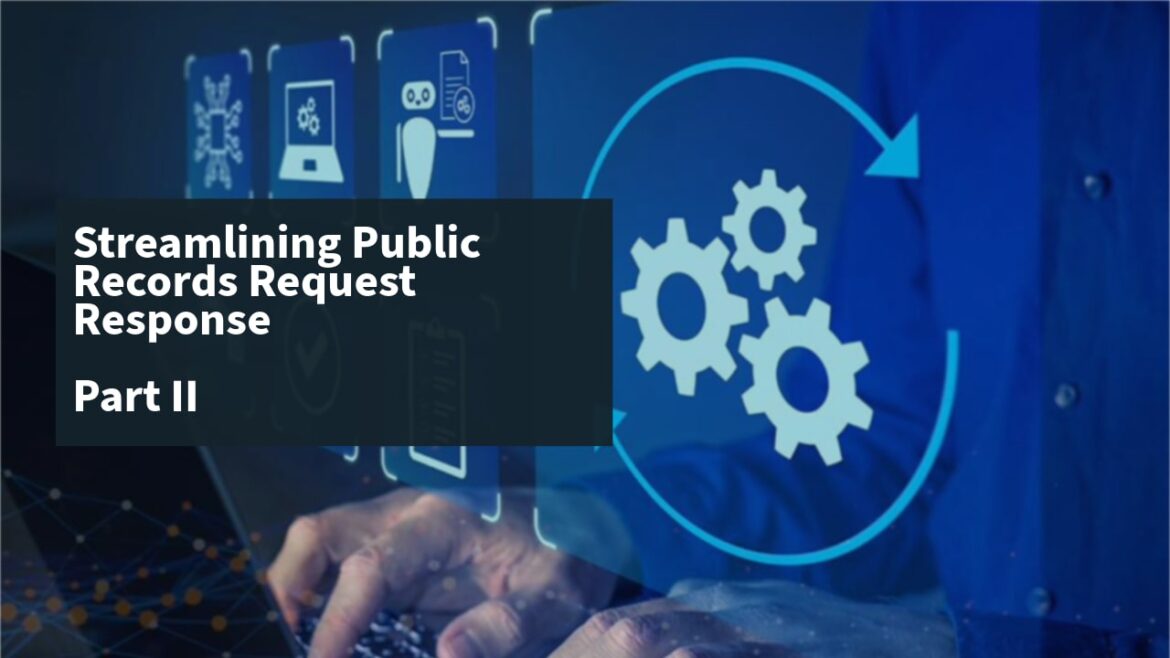eDiscovery Daily Blog
How eDiscovery Technology and Workflows Speed Public Records Requests Response
This is the second blog post in a series on streamlining public records request response.
By Rick Clark
In the two separate worlds of legal processes and Freedom of Information Act (FOIA)/public records requests, eDiscovery technology and standard workflows have emerged as powerful ways to streamline operations and ensure compliance. Particularly, the handling of FOIA requests and public records requests showcases the potential similarities between these processes and eDiscovery workflows.
One key similarity lies in the meticulous management of data, starting from governance levels and progressing through collection, processing, review, and export stages. Both FOIA requests and eDiscovery workflows require focused information retrieval, often involving large volumes of data. While FOIA requests aim to access government records, eDiscovery deals with electronic information for legal proceedings, both necessitating efficient data organization and retrieval mechanisms.
Legal and regulatory compliance is another shared aspect. FOIA and public records requests are legally mandated, mirroring the legal frameworks that govern eDiscovery processes. Ensuring easy data organization and adherence to legal and regulatory frameworks is critical in both contexts. Search and review processes are central to both FOIA requests and eDiscovery workflows. Leveraging search tools and methodologies, both processes sift through vast amounts of data to identify relevant information. eDiscovery software platforms excel in simplifying this process, allowing for quick identification, tagging, and export of pertinent data, enhancing efficiency in handling requests.
Redaction of sensitive information is also common to both FOIA and eDiscovery. Tools and techniques are employed to protect sensitive details, including personal identifiable information (PII) before disclosure. Modern data challenges, including the use of multiple communication platforms like Microsoft Teams and Slack, further highlight the need for adaptable and comprehensive data management solutions.
Efficient workflow management is crucial for both FOIA requests and eDiscovery. Complex workflows require seamless coordination among stakeholders to meet legal deadlines and ensure accurate responses. Transparency and collaboration among legal teams, IT professionals, and subject matter experts are vital for success.
While differences exist between FOIA requests and eDiscovery, advancements in eDiscovery software have made it adaptable to public requests. Providers offering secure cloud solutions, easy data uploads, case setup with team access, hybrid workflows, advanced search capabilities, and collaboration tools are aligning their offerings with the needs of modern data and document management systems. As organizations navigate the complexities of data requests and investigations, choosing the right technology partner is essential to ensuring efficient, compliant, and transparent processes.
In our next blog out next week, you will learn more about resourcing teams to fulfill public records requests when resources are lean.
To find out more about how CloudNine can help you to streamline public records request response with our cloud-based eDiscovery solution and set a time to meet with us.
Read our first blog post in this series, “Growing Challenges with Public Records Requests”.
About the Authors
Rick Clark is VP, Strategic Partnerships at CloudNine and has 20+ years of experience in forensics and eDiscovery. Focused on innovation and education, he co-founded ESI Analyst, now CloudNine Analyst, as well as Wave Software and the Master’s Conference.

